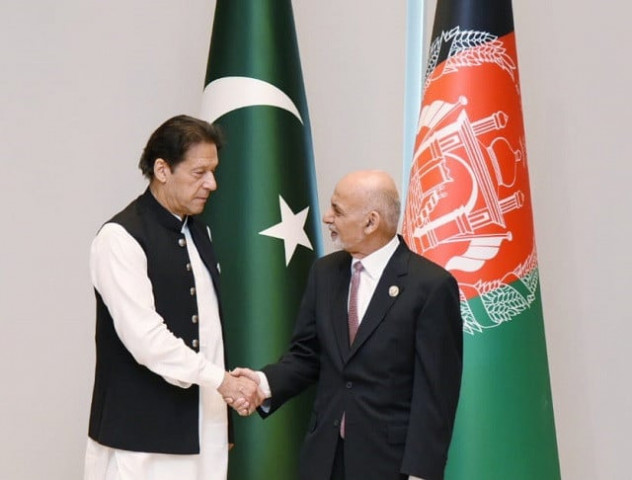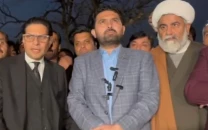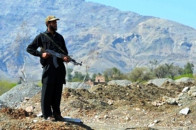‘Extremely unfair’ to blame Pakistan for Afghan unrest
Imran tells Ghani Islamabad would be last county to try to destabilise its eastern neighbour

Prime Minister Imran Khan told Afghan President Ashraf Ghani on Friday Pakistan would be the last county to try to destabilise his country and stressed the need for the Afghan stakeholders and the international community to gear up efforts for a “politically negotiated settlement” there.
Responding to the speech of Ghani at a conference on ‘Central and South Asia Regional Connectivity, Challenges and Opportunities’ in Tashkent, Imran said that blaming Pakistan for the ongoing unrest in the war-battered country was “extremely unfair”.
“Mr Ghani, I want to make it clear to you that Pakistan will be the last country to think about supporting turmoil and unrest in Afghanistan,” Imran said. “Blaming Pakistan for what is going on in Afghanistan is extremely unfair…Peace in Afghanistan is our foremost priority,” he added.
The prime minister asked Afghanistan to consider Pakistan as a “partner of peace” rather than blaming it for the ongoing unrest, which he said was the “outcome of using a military solution by the United States instead of a political one”.
Rejecting the assertions of Ghani made against Pakistan for “not supporting peace”, Imran categorically stated that Pakistan did not want turmoil in its neighbourhood because peace was in its own interest. He added that Pakistan would continue to support reconciliation in Afghanistan.
He mentioned that due to the decades-long conflict in Afghanistan, Pakistan suffered heavily in terms of its 70,000 casualties, besides facing huge economic instability. He also mentioned 3 million Afghan refugees and added that Pakistan did not have the capacity to bear another influx.
The prime minister said that Pakistan’s economy was recovering after a difficult phase. “Pakistan wants peace in the neighbourhood to ensure the completion of development projects for the betterment of the entire region,” he added.
Imran said Pakistan had made every effort for peace in Afghanistan, including bringing the Taliban to the dialogue table. However, he said that the right time to engage the Taliban in negotiations was way before the pull-out of the US troops from Afghanistan.
“Why would the Taliban listen to Pakistan at a time when they are gaining victory after the withdrawal of troops,” he pointed out, adding that the US always insisted on a military solution to the Afghan conflict.
He referred to his talks with Uzbek President Shavkat Mirziyoyev on Thursday, in which, he said, he discussed just how the neighbouring countries of Central Asia could support peace and stability in Afghanistan for the region’s prosperity.
Pakistan, he continued, believed in regional connectivity by promoting the land and sea linkages. He said Pakistan’s Gwadar seaport had the potential to cater to the needs of Central Asia and South Asia as a regional transportation hub. He described the China-Pakistan Economic Corridor (CPEC) as the harbinger of development and prosperity for the region, benefitting the two regions.
Read More: Lawmakers call for unity to face emanating Afghan challenges
Other challenges
Imran said another challenge to regional development was the “unsettled disputes” in South Asia, including the core issue of Jammu and Kashmir. “The unsettled disputes between Pakistan and India remain a challenge with Kashmir as the main issue,” he said, adding that unfortunately, because of such a situation, the huge potential of regional development remained untapped.
Later, responding to a question from an Indian journalist about Pakistan’s stance regarding talks with India, Prime Minister Imran said that India’s Rashtriya Swayamsevak Sangh (RSS) ideology was the main hurdle in normalisation of ties with Pakistan.
“We have been trying to tell India … that we have been waiting … for a long time, let’s live like civilised neighbours … but what to do, as the RSS ideology has come in the way,” he told the Indian journalist, while leaving the Congress Hall after attending the conference.
The conference was also attended by President Mirziyoyev, President Ghani, the foreign ministers and high representatives of the countries of Central and South Asia, and the heads of international and regional organisations and global financial institutions.
On the sidelines of the conference, Prime Minister Imran met with Josep Borrell, the European Union’s High Representative for Foreign Affairs and Security Policy/Vice President of the European Commission, and urged the European bloc to support the rehabilitation of Afghan refugees.
In the meeting, Imran expressed concern over the worsening situation in Afghanistan and its negative impact on the security situation of Pakistan. He stressed that the Afghan conflict could only be settled through to a comprehensive negotiated political settlement.
The prime minister emphasised the importance of continued engagement of international community following the withdrawal of foreign forces from Afghanistan to facilitate lasting peace.
Qureshi meets Khalilzad
Also on the sidelines of the conference, Foreign Minister Shah Mahmood Qureshi and US Special Representative for Afghanistan Reconciliation Ambassador Zalmay Khalilzad discussed the evolving situation in Afghanistan following the withdrawal of foreign troops.
The foreign minister said that Pakistan considered peace in Afghanistan essential for the region’s economic development and stability and added that Islamabad would continue to play its conciliatory role for peace there.
“The future of Afghanistan is to be decided by the Afghans themselves,” Qureshi said. “Pakistan will support an Afghan-owned and Afghan-led political settlement through comprehensive dialogue among the stakeholders.”



















COMMENTS
Comments are moderated and generally will be posted if they are on-topic and not abusive.
For more information, please see our Comments FAQ